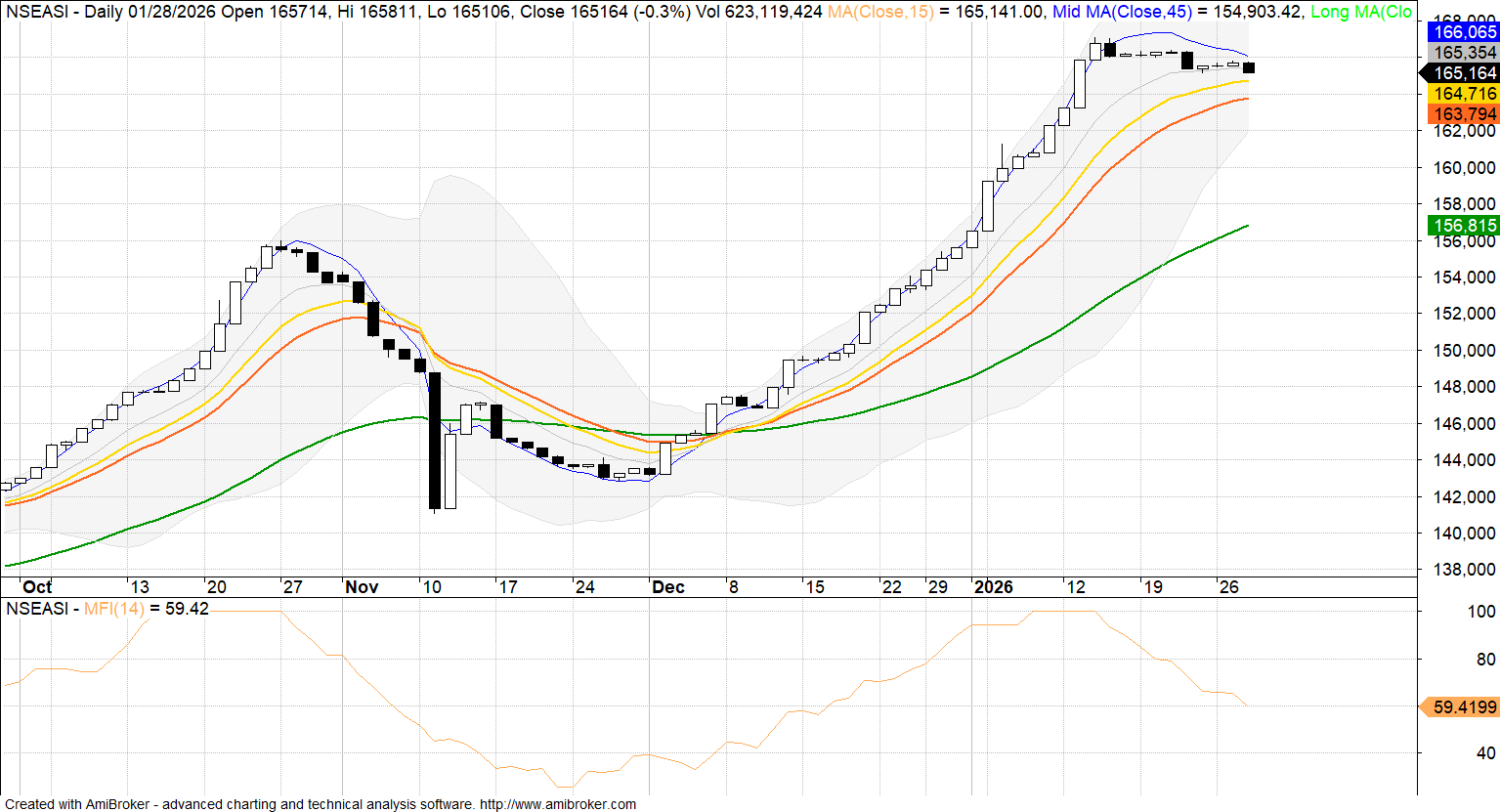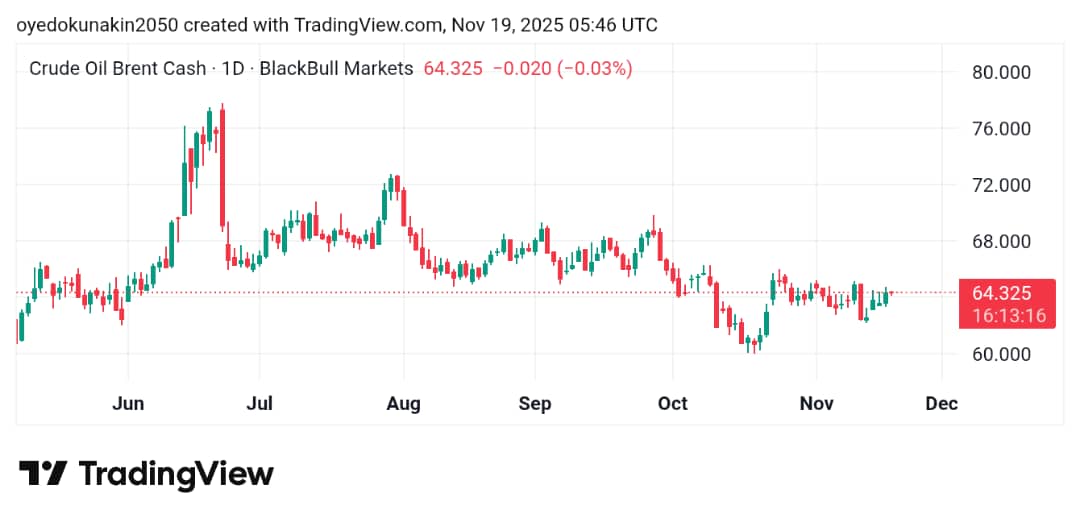
Akintunde Oyedokun
Research Analyst
Oil prices fell Thursday with Brent crude down 0.9% to $81.29 per barrel and U.S. WTI dropping 1.7% to $78.68. The decline followed expectations that Yemen’s Houthi militia would cease attacks on Red Sea shipping, reducing supply risks.
Strong U.S. retail sales highlighted economic resilience, but investors remained cautious about Federal Reserve policy. Comments from Fed Governor Christopher Waller on easing inflation provided some market support.
Sanctions on Russia and OPEC+ caution on output adjustments continued to influence oil dynamics.
Japan’s Labour Shortage Grows, Straining Businesses, Driving Costs Higher
Labour shortages are significantly affecting two-thirds of Japanese companies, according to a Reuters survey, with small businesses and non-manufacturers struggling the most. Rising personnel costs and a 32% jump in labour-related bankruptcies in 2024 underscore the crisis.
Firms are responding by boosting recruitment and extending retirement ages, but improvements remain minimal. With wages and import costs climbing, 44% of companies plan price hikes. The trend aligns with government policies emphasizing wage increases and capital investment to fuel economic growth.
UK Economy Grows Marginally In November Despite Tax Increases
Britain’s GDP grew by 0.1% in November after two months of contraction, falling short of economists’ 0.2% forecast. The modest growth followed tax hikes announced by finance minister Rachel Reeves, who vowed further steps to accelerate the economy.
Businesses remain cautious, focusing on cost-cutting, which could impact hiring and investment. The Bank of England is likely to cut rates in February, but concerns about tax policies and global uncertainty persist.
While government spending in 2025 may provide a temporary boost, the economy continues to struggle, with zero growth in Q3 and a slower recovery compared to other G7 nations.
Tongaat Hulett Zimbabwe Plans 1,000 Job Cuts To Tackle Rising Costs
Tongaat Hulett Zimbabwe, facing economic turmoil, will lay off 1,000 employees by August to curb rising labor and fertilizer costs. The company has seen a 55% drop in profit margins and a 113% increase in labor costs since 2022, exacerbated by the country’s currency crisis and inflation. The layoffs will be phased over several months, affecting workers at the company’s mills in Hippo Valley and Triangle. Despite challenges in Zimbabwe, the company is not linked to the business rescue efforts of its South African parent. Tongaat is also selling its Zimbabwe assets as part of a restructuring strategy.
Nigerian Governors Back Revised VAT Formula For Fairer Resource Distribution
The Nigeria Governors’ Forum (NGF) has officially endorsed a revised Value Added Tax (VAT) sharing formula designed to promote a more equitable distribution of Nigeria’s resources. The formula allocates 50% based on equality, 30% on derivation, and 20% on population, ensuring fairness among states. The NGF highlighted the need for comprehensive tax reforms to modernize Nigeria’s fiscal policies and align with global best practices. The forum also advocated for the continued exemption of essential goods and agricultural products from VAT, while rejecting any increase in VAT rates or reduction in Corporate Income Tax (CIT) at this time. This endorsement follows consultations with the Presidential Tax Reform Committee and other relevant stakeholders, signaling a significant step toward advancing tax reform legislation.












